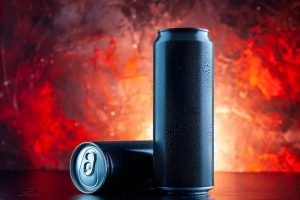 The case of Monster Energy Company vs Krishna Trading Co. & Ors. revolves around the infringement of Monster Energy’s registered trademarks and copyrights by the defendants, who were allegedly manufacturing and selling counterfeit products bearing the plaintiff’s distinctive “MONSTER” trademarks and claw icon. The plaintiff, Monster Energy Company, a U.S.-based corporation renowned for its energy drinks and a wide range of merchandise, sought permanent injunction, damages, and other reliefs against the defendants for unauthorised use of its intellectual property.
The case of Monster Energy Company vs Krishna Trading Co. & Ors. revolves around the infringement of Monster Energy’s registered trademarks and copyrights by the defendants, who were allegedly manufacturing and selling counterfeit products bearing the plaintiff’s distinctive “MONSTER” trademarks and claw icon. The plaintiff, Monster Energy Company, a U.S.-based corporation renowned for its energy drinks and a wide range of merchandise, sought permanent injunction, damages, and other reliefs against the defendants for unauthorised use of its intellectual property.
Monster Energy Company, operating in India through its subsidiary Monster Energy India Pvt. Ltd., claimed ownership of several registered trademarks, including “MONSTER,” “MONSTER ENERGY,” and the iconic claw logo. These trademarks were extensively used across a diverse product line, from beverages to apparel, and were backed by significant global and domestic marketing efforts. The plaintiff argued that the defendants—Krishna Trading Co., Galaxy Caps, and Ashok Kumar—were manufacturing and selling counterfeit caps and apparel bearing identical or deceptively similar marks, thereby infringing its trademarks and copyrights, diluting its brand value, and misleading consumers.
The plaintiff discovered the infringing activities in March 2022 and initiated legal proceedings after conducting market investigations. A local commissioner was appointed, who confirmed the presence of counterfeit goods at the defendants’ premises. While Defendant No. 1 (Krishna Trading Co.) contested the suit initially, it later settled with the plaintiff. Defendant No. 2 (Galaxy Caps) refused to accept summons and was proceeded against ex parte. Defendant No. 3 (Ashok Kumar) was deleted from the suit after the plaintiff withdrew claims against him.
The court framed several issues, including whether the suit was maintainable for non-compliance with Section 12A of the Commercial Courts Act, whether the plaintiff was entitled to injunctive relief, and whether damages or rendition of accounts were warranted. On the procedural issues, the court noted that Defendant No. 1’s settlement rendered those issues infructuous.
On the merits, the court found overwhelming evidence supporting Monster Energy’s claims. The plaintiff’s witness, Meena Bansal, testified and produced documents proving the company’s trademark registrations, the defendants’ infringing goods, and the local commissioner’s report, which detailed the seizure of 174 counterfeit caps from Galaxy Caps. The court held that the plaintiff’s trademarks were distinctive and had acquired significant goodwill, making them entitled to protection under the Trade Marks Act, 1999, and the Copyright Act, 1957.
The court granted a permanent injunction restraining Defendant No. 2 from using, manufacturing, or selling any goods bearing the plaintiff’s trademarks or any deceptively similar marks. It also ordered the delivery of all infringing materials to the plaintiff for destruction.
The judgment underscored the importance of protecting intellectual property rights and the judiciary’s role in curbing trademark piracy. By awarding punitive damages, the court sent a strong message against deliberate infringement and evasion of legal proceedings. The case highlights the challenges rights holders face in combating counterfeit goods and the judicial recourse available to safeguard their brand integrity. In conclusion, the case emphasises the consequences of infringing well-established brands and the judiciary’s willingness to impose punitive measures to uphold intellectual property rights. The judgment serves as a deterrent to counterfeiters and a precedent for future cases involving brand imitation and piracy.



